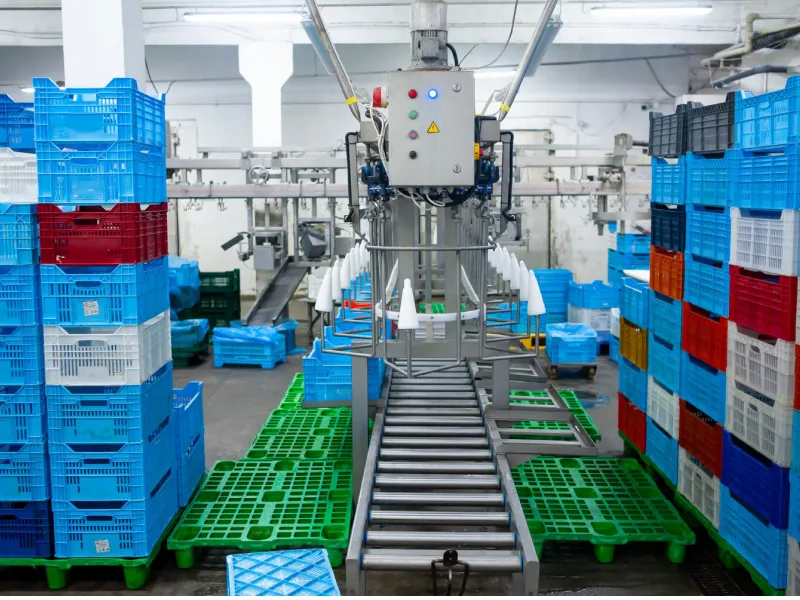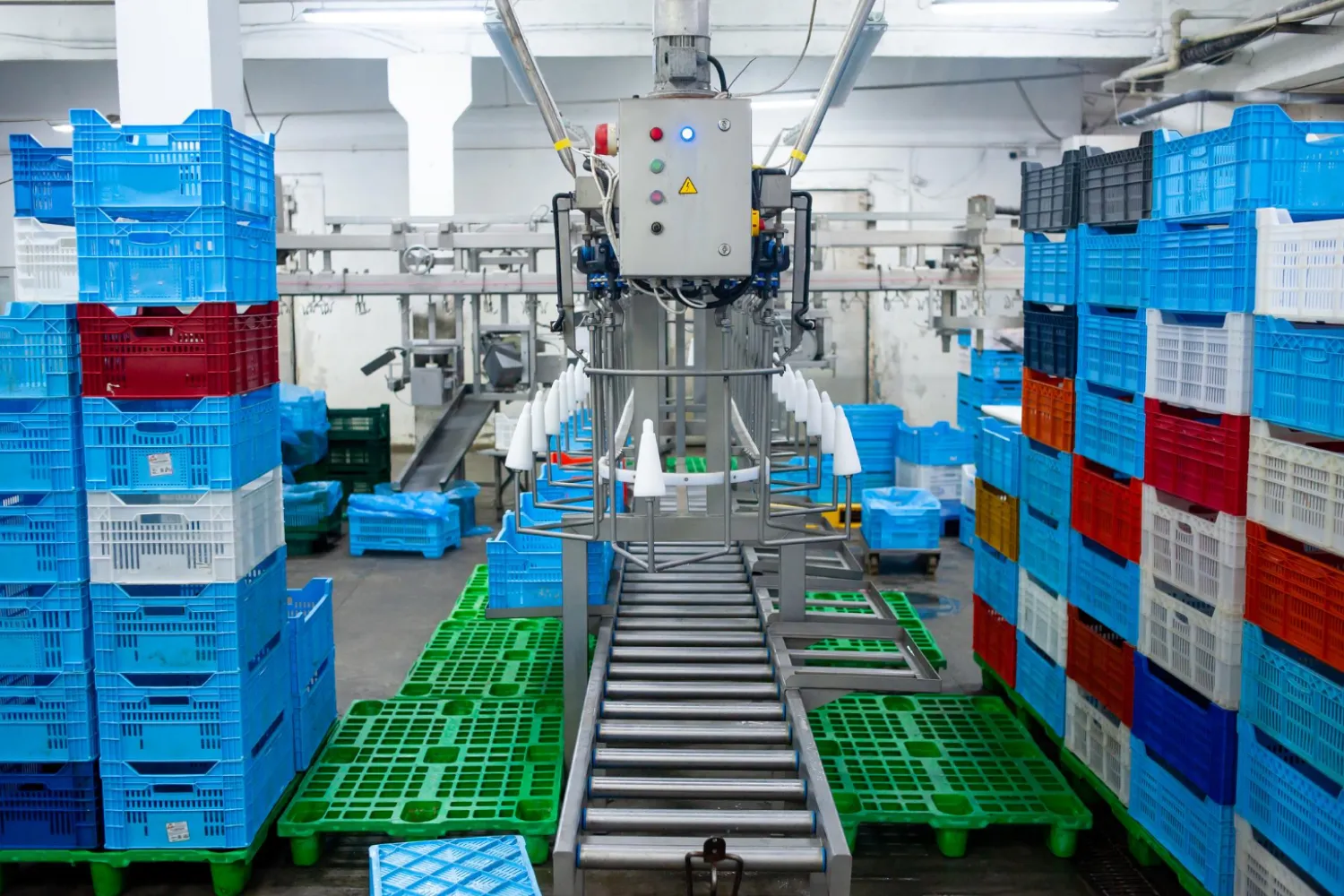
The Role of Plastic Handling Equipment in the Future of Smart Warehousing
How is plastic handling equipment advancing smart warehousing in the UAE?
Every tool in a warehouse needs to function perfectly every second counts and every square meter matters. Despite all the talk about robotics and AI plastic handling equipment is a vital component that subtly drives this change. Modern handling tools are the foundation of smart warehousing from intelligent crates that communicate via RFID tags to robust plastic pallets that move smoothly on automated conveyors. They are enabling automation not merely supporting it and at every stage they are increasing efficiency, speed, safety and sustainability.
Table Of Contents:

The Evolution Of Smart Warehousing
Warehouses have developed into intelligent automated data-driven systems from their humble beginnings as storage spaces. These three factors are crucial in today’s warehouse environment:
- Speed, accuracy and efficiency:Unquestionably smart warehousing is one of the major technologies propelling this revolution.
- Storage technology advancements: Through the use of technologies like robotics, artificial intelligence (AI) the Internet of Things (IoT) and warehouse management systems (WMS) tasks that were previously managed by hand labor are now automated.
- Handling goods is made simple by robotic arms conveyor belts and automated guided vehicles (AGVs). This boosts productivity and lowers human error.
Importance Of Plastic Handling Equipment
The demand for effective goods handling is rising daily in the quickly expanding logistics transportation and warehousing industries. To guarantee efficiency and safety at every stage the proper handling equipment is necessary. The use of plastic handling equipment such as bins, crates, pallets and containers is crucial in this industry. They serve as both the basis for intelligent warehousing systems and storage equipment.
Making Automation Better with Intelligent Design
- Automation is only effective in contemporary warehousing when the equipment is intelligently designed.
- Among the technological systems that run warehouses today are automated guided vehicles (AGVs) robot sensors and others.
- For plastic handling equipment to operate accurately these systems must be considered during design.
- Thanks to ingenious plastic container design plastic pallets crates and bins can be easily handled by robotic arms and conveyor systems.
- They are ideal for sensor-based systems because of their lightweight design and identical manufacturing dimensions.
- Moreover some pallets now have tracking sensors, QR codes and RFID chips that can be used to automate inventory management and determine the current location of goods.
- This kind of clever design speeds up warehouse automation, lowers errors, boosts security and boosts output.
Circular Logistics and Sustainability
- In the fields of supply chain management logistics and warehousing efficient and sustainable practices are now essential.
- Circular Logistics uses recycling reuse and conservation to develop logistics systems that are both economically and environmentally sustainable.
- The core of this effort is plastic handling equipment such as pallets, crates and containers.
Benefits
- The uniform size and shape of plastic pallets makes them perfect for automated conveyor lines and robotic systems.
- The use of plastic equipment is growing in industries like food and pharmaceuticals because it is non-porous and easy to clean.
- Its light weight makes it easy to handle. Because plastic equipment is lightweight it can be easily transported and stacked which lowers fuel expenses.
- The current state of warehousing is shifting toward sustainability. Recycling and reusing plastic equipment offers an eco-friendly solution.
The Future Of Plastic Handling Equipment: Safety and Sustainability
- Future handling equipment prioritizes safety.
- The food, pharmaceutical and fast-moving consumer goods industries are safe thanks to the non-porous technology, soft growth and hygienic design of plastic devices.
- The modular design allows for the seamless integration of robotic systems and conveyor lines.
- Sustainability is becoming a more and more significant goal for handling equipment of the future.
- Containers and pallet crates made of plastic are durable and readily reusable. Outdated electronics are recycled and plastic waste is reduced.
- Reducing carbon emissions and using sustainable logistics practices are two advantages of this.
- In addition industries can simultaneously save money and operate in an environmentally friendly manner by focusing on sustainability and long-term usability.
Future Directions:
- Plastic equipment that is safe and intelligent.
- Future plastic handling technology will use bio-based plastics, robotic-compatible designs and Internet of Things-enabled equipment to make warehouse operations smarter and more efficient.
- Inventory control loss-less risk and real-time tracking can all be enhanced with RFID chips sensors and QR codes.
- Future warehouses will be safer, more intelligent and more environmentally friendly which will improve customer service and business operations.
FAQ
Container crates and pallets are examples of plastic handling equipment. In the warehouse these aid in the safe and effective distribution and storage of goods.
Future machinery will be intelligent modular IoT-enabled compatible with robotics reusable and recyclable.
Yes. Employee safety is guaranteed and manual handling errors are decreased thanks to the lightweight modular design, nonporous technology and hygienic environment.










